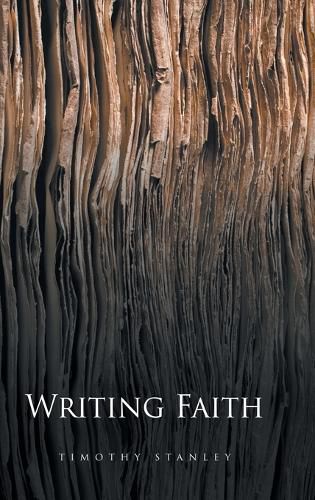Readings Newsletter
Become a Readings Member to make your shopping experience even easier.
Sign in or sign up for free!
You’re not far away from qualifying for FREE standard shipping within Australia
You’ve qualified for FREE standard shipping within Australia
The cart is loading…






Current digital transformations of information technology have given rise to an explosion of scholarly interest in the history of the book. Although this research has focused predominantly on the rise of movable type after Gutenberg, the second-to-fifth-century-CE transition from scroll to codex warrants renewed attention. Here, a peculiar footnote comes to the fore: Christians were early adopters of the codex for their sacred scriptures. In Writing Faith, Timothy Stanley begins with a novel investigation into Jacques Derrida’s unanswered question concerning the mediatic nature of Christianity. There, the relationship between writing and faith comes into sharper focus. It is in this light that the codex’s cosmopolitan capacity for transmitting the written word can be re-evaluated in its scrolled Greco-Roman and Jewish bibliographic contexts. Christian faith is bound up in this technical development, and can inform how religious mediation is understood after Derrida. Writing Faith aims to recover vital questions for today’s digital times.
$9.00 standard shipping within Australia
FREE standard shipping within Australia for orders over $100.00
Express & International shipping calculated at checkout
Current digital transformations of information technology have given rise to an explosion of scholarly interest in the history of the book. Although this research has focused predominantly on the rise of movable type after Gutenberg, the second-to-fifth-century-CE transition from scroll to codex warrants renewed attention. Here, a peculiar footnote comes to the fore: Christians were early adopters of the codex for their sacred scriptures. In Writing Faith, Timothy Stanley begins with a novel investigation into Jacques Derrida’s unanswered question concerning the mediatic nature of Christianity. There, the relationship between writing and faith comes into sharper focus. It is in this light that the codex’s cosmopolitan capacity for transmitting the written word can be re-evaluated in its scrolled Greco-Roman and Jewish bibliographic contexts. Christian faith is bound up in this technical development, and can inform how religious mediation is understood after Derrida. Writing Faith aims to recover vital questions for today’s digital times.